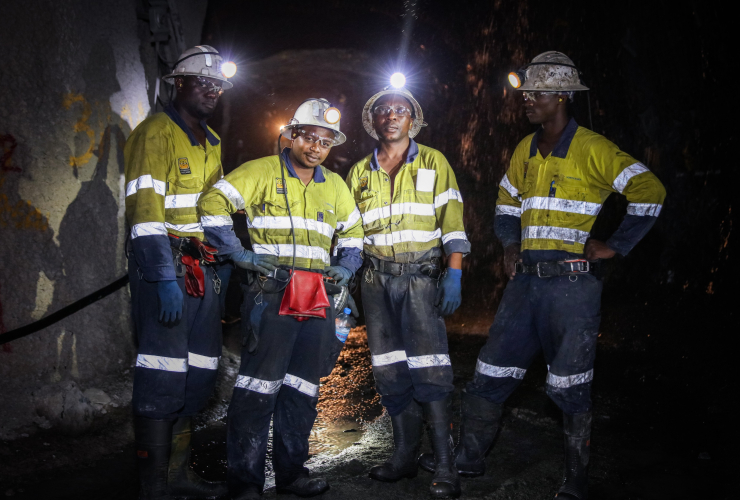After pleading guilty to releasing harmful substances into bodies of water near its operations, a Nova Scotia mining company has been ordered to pay $250,000 to the provincial and federal governments.
Atlantic Mining NS Inc., which operates as Atlantic Gold in the province, pleaded guilty earlier this month to two charges: failing to test the quality of runoff water at its Touquoy open-pit gold mine in Moose River and failing to report those findings to authorities. Initially, 32 environmental infractions were laid against the company, but that number was reduced during the plea process.
Atlantic Gold was ordered to pay $120,000 to the federal government’s Environmental Damages Fund, and $5,000 towards court fines. The firm was also penalized for violating Nova Scotia’s Environmental Act — $120,000 will be split between the Unama’ki Institute of Natural Resources in Eskasoni, and the Mi’kmaq Conservation Group, and $5,000 in court fines.
According to Environment and Climate Change Canada (ECCC), “... The company failed to immediately collect samples from the area for acute lethality testing and failed to report the results to ECCC following the incidents, as required by the Metal and Diamond Mining Effluent Regulations under the Fisheries Act.”
The company committed seven incidents of “unauthorized deposits of deleterious substances” between 2018 and 2019. Canada’s National Observer reached out to ECCC for more information on the substances but didn’t hear back in time for publication.
It’s important to put the fines in context, said Tynette Deveaux with the Nova Scotia chapter of Sierra Club Canada, who described the amount as a “drop in the bucket.” She notes Atlantic Gold has produced $750 million in gold at the mine since 2017.
“The reality is, if companies want to cut corners, they cut corners. They do so because it's cheaper, it's faster, and nobody's watching. And on the off chance that they get caught, they know the fines aren’t particularly significant,” she said.
The news begs answers to larger questions about environmental regulation and reporting in the industry, and further underscores more general concerns around mining, said Deveaux. Giving a mining company the benefit of the doubt through the power to self-report is a huge flaw in the industry, she said.
Calculations Deveaux did previously showed the gold mine in Moose River uses 262.8 million litres of water a year, and pays a yearly cost of around $370, while a small Halifax family uses 124,830 litres of water and pays $732.
“You've got to scratch your head and wonder why we're even talking about gold mining permits advancing through the environmental assessment stage,” she said.
As reported by the Halifax Examiner, Atlantic Gold’s parent company, Australia-based St Barbara, put out a release after the decision saying it is “very sorry.” The company, which St Barbara took over in 2019, has until March to pay the fines.
“...We have made it our priority to reinforce and strengthen our due diligence standards and procedures to ensure our operations are fully compliant with both federal and provincial requirements and we are regretful that the events occurred in the first place – even if the underlying problem predated our ownership," said Meryl Jones, President of Americas for the company.
"Honouring our commitment to trust and transparency is of utmost important to us.
Updates and corrections
| Corrections policyThis article has been updated to include a statement from St Barbara






Comments